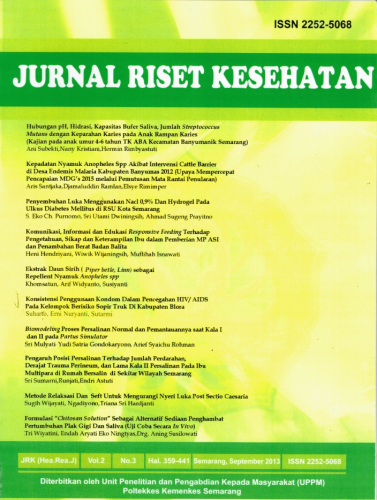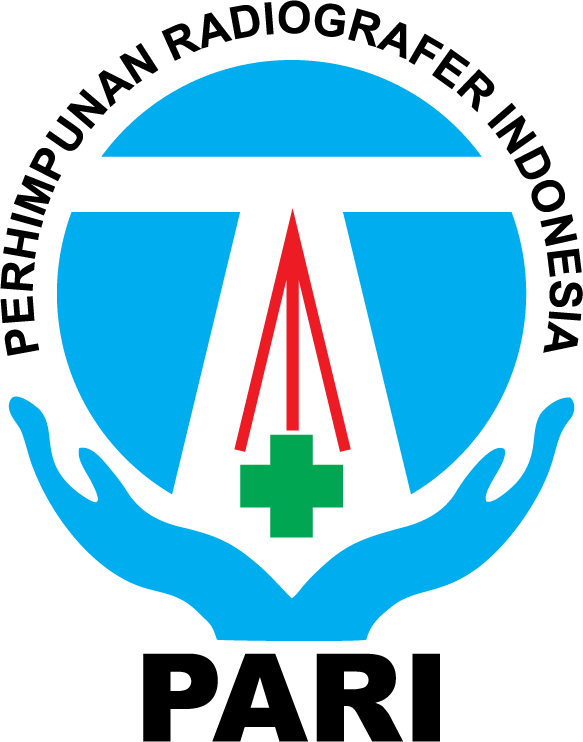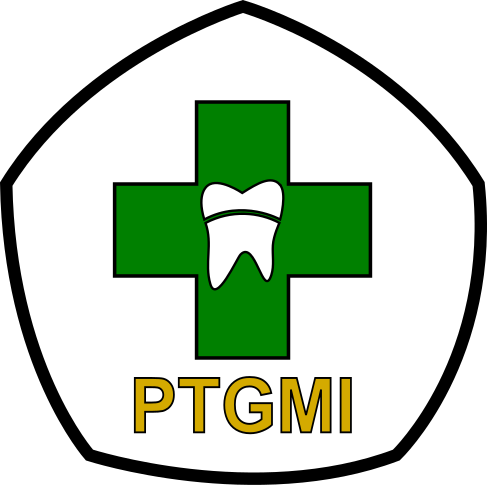FACTORS RELATED TO COMPLIANCE WITH HYPERTENSION PATIENTS IN THE TREATMENT OF TREATMENT
Abstract
Hypertension that is continuously high for a long time can cause complications. Therefore, hypetension must be detected early with routine blood pressure checks. This study aims to determine the factors associated with compliance with hypertension in undergoing treatment in the work area of Simpang Tuan Health Center. This study uses a cross sectional design. The study sample was 168 people with hypertension. The sampling technique is proportional random sampling. The instrument used was a questionnaire with interviews. Data were tested using the chi square statistical test. The results showed that 89.3% of respondents had low adherence to treatment, 44.6% had poor knowledge, 29.8% had poor attitudes, 77.4% had poor access to services, 50% had poor family support , 32.7% of the role of health workers is not good. The results of bivariate analysis found that there was a relationship between knowledge (p = 0,000), access to services (p = 0.014) and compliance with hypertension in undergoing. There was no relationship between attitude (p = 0.119) and family support (p = 0.803) and the role of health workers (p = 0.203) with hypertension patients' compliance in undergoing treatment at the Simpang Tuan Health Center in 2020. Community Health Center provides health education to hypertensive sufferers outpatient care at Simpang Tuan Health Center and health education should not only be given to hypertension sufferers, but also to families and people closest to hypertension sufferers so that they can participate in reminding and motivating hypertensive sufferers
Keywords
Full Text:
PDFReferences
Depkes. (2009). Pedoman Umum Keperawatan Dasar di Rumah Sakit dan Puskesmas. Jakarta: Departemen Kesehatan RI.
Dinkes. (2018). Profil Kesehatan Provinsi Jambi Tahun 2017. Jambi: Dinas Kesehatan Provinsi Jambi.
Kemenkes. (2013). Pedoman Tatalaksana Hipertensi. Jakarta: Kementerian Kesehatan Republik Indonesia.
Kemenkes. (2018). Profil Kesehatan Indonesia Tahun 2017. Jakarta: Kementerian Kesehatan Republik Indonesia.
Martiningsih, U., Rachmadi, F., & Fahdi, F. K. (2019). HUBUNGAN PERAN PETUGAS KESEHATAN TERHADAP KEPATUHAN MINUM OBAT ANTIHIPERTENSI PADA PENDERITA HIPERTENSI DI WILAYAH KERJA PUSKESMAS PARIT H. HUSIN II KOTA PONTIANAK.
Morisky, D., & Munter, P. (2009). New medication adherence scale versus pharmacy fill rates in senior with hipertention. American Jurnal Of Managed Care, 15(1), 59–66.
Mubarak, W. I. (2006). Ilmu Keperawatan Komunitas. Jakarta: Sagung Seto.
Niven, N. (2002). Psikologi Kesehatan Pengantar untuk Perawat Profesional Kesehatan Lain. Jakarta: EGC.
Notoatmodjo, S. (2007). Promosi Kesehatan dan Ilmu Perilaku. Jakarta: Rineka Cipta.
Notoatmodjo, S. (2010). Promosi Kesehatan Teori dan Aplikasi. Jakarta: Rineka Cipta.
Palmer, A., & Williams, B. (2007). Tekanan Darah Tinggi. Jakarta: Erlangga.
Riskesdas. (2013). Riset Kesehatan Dasar Tahun 2013. Jakarta: Kementerian Kesehatan Republik Indonesia.
Riskesdas. (2018). Riset Kesehatan Dasar Tahun 2018. Jakarta: Kementerian Kesehatan Republik Indonesia.
Sugiarto, Hanafi, P., & Berliana, N. (2019). HIV/AIDS PREVENTION BEHAVIOR IN THE COMMUNITY OF MEN WHO HAVE SEX WITH MEN AND INFLUENCING FACTORS. Jurnal Riset Kesehatan, 8(2), 5–10. https://doi.org/10.31983/jrk.v8i2.5336
Wawan, A., & Dewi, M. (2010). Teori dan Pengukuran Pengetahuan, Sikap dan Perilaku Manusia. Yogyakarta: Nuha Medika.
DOI: https://doi.org/10.31983/jrk.v9i1.5683
Article Metrics
Refbacks
- There are currently no refbacks.
Copyright (c) 2020 Jurnal Riset Kesehatan














































